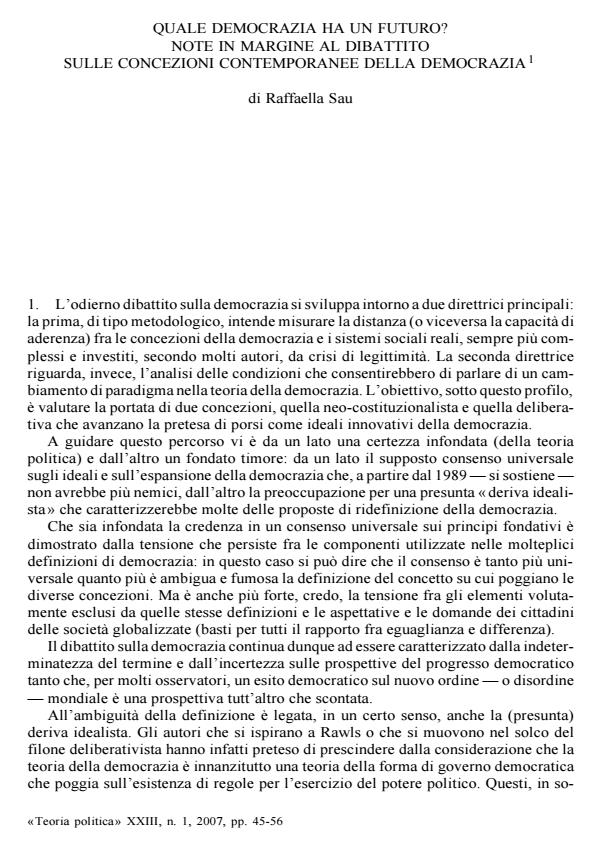Quale democrazia ha un futuro? Note in margine al dibattito sulle concezioni contemporanee della democrazia
Journal title TEORIA POLITICA
Author/s Raffaella Sau
Publishing Year 2007 Issue 2007/1
Language Italian Pages 12 P. 45-56 File size 37 KB
DOI
DOI is like a bar code for intellectual property: to have more infomation
click here
Below, you can see the article first page
If you want to buy this article in PDF format, you can do it, following the instructions to buy download credits

FrancoAngeli is member of Publishers International Linking Association, Inc (PILA), a not-for-profit association which run the CrossRef service enabling links to and from online scholarly content.
Should we talk about a change of paradigm in the theory of democracy? Two conceptions in particular deliberative democracy and neo-constitutional democracy may be considered new models. Deliberative theories enphasize the role of consensual decisions which aim at overcoming majority rule and at revitalizing the principle of popular sovereignty. Neoconstitutionalist theories argue instead that rights are the only remedy against majoritarian power, i.e. against the old fear of the tiranny of the majority. Those who criticize these theories stress their inconsistency with respect to the link they introduce between procedures and fundamental principles. This may well be their failure, but some suggest that it is precisely from this inconsistency that we can draw some ideas about a future strategy: it is in fact starting from a good mix of rules and ideals that a democracy for the future may be built.
Raffaella Sau, Quale democrazia ha un futuro? Note in margine al dibattito sulle concezioni contemporanee della democrazia in "TEORIA POLITICA" 1/2007, pp 45-56, DOI: